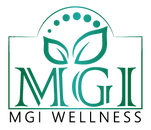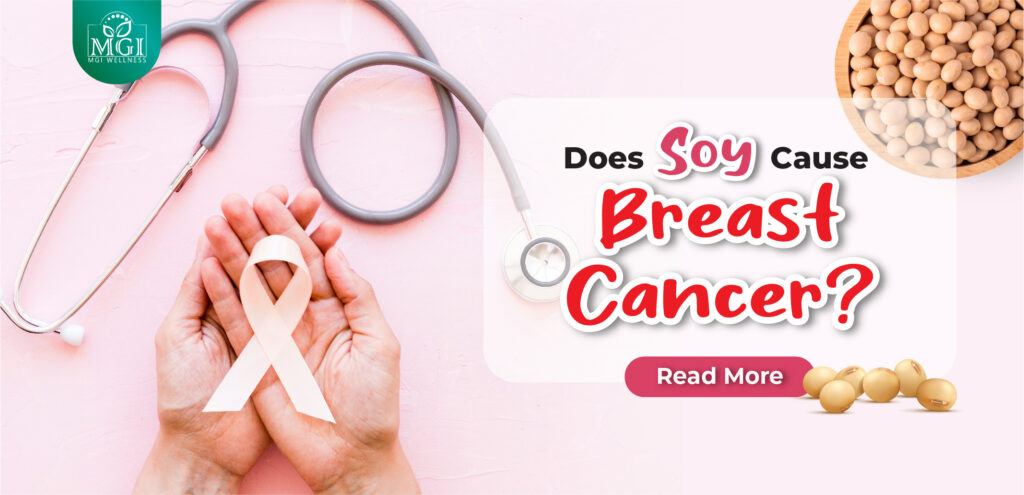Wellness
Does Soy Cause Breast Cancer?
Does eating soy cause breast cancer? This is quite a controversial and debatable question and often, it causes confusion. However, the answer is no. There is no direct link between soy intake and breast cancer. So there is no reason to avoid soy beans or soy products such as tofu and tempeh.
What’s with the confusion about soy and breast cancer?
There’s a popular myth saying that soy beans contain an active compound called isoflavones, which are high in estrogen and thus, increasing breast cancer risk. This couldn’t be any further from the truth. In fact, various studies have shown that a diet high in soy can reduce the risk of breast cancer. (1) Some of these studies have also shown that soy foods may reduce the risk of breast cancer relapse in breast cancer survivors when compared to those who avoid soy foods. (2,3)
How about soy isoflavone supplements?
Soy isoflavones are nutrients found in soy beans, which are extracted and often made into supplements. There are concerns that supplements often contain higher doses of soy isoflavones as compared to those of food sources and this may increase the risk of breast cancer, especially in older women.
However, a 2 year study on menopausal women have shown that long term consumption of 80 to 120 mg of soy isoflavones per day pose minimum health risk, and there is no reason to suggest that soy isoflavone supplementation increases the risk of breast cancer. (4) In fact, other studies have also shown that soy isoflavone supplements can reduce the risk of breast cancer and unlikely to be harmful to women who had breast cancer or undergoing treatment. (5,6)
What does soy isoflavone do?
Soy isoflavones can help maintain hormone balance in both young and older women. The effect of soy Isoflavone will depend on the circulating concentrations of the estrogen hormone. (7) When there is lack of estrogen hormone (i.e. after menopause), soy isoflavones bind to the estrogen receptors, producing estrogen-like effects, and thus, help relieve menopause symptoms such as hot flashes and night sweats. (7)
On the other hand, fluctuating estrogen hormones in menstruating women can cause PMS symptoms such as mood swings, period cramps, and migraine. Therefore, the binding of soy isoflavones to estrogen receptors results in anti-estrogen effects, which blocks the effects of the estrogen, and thus, help relieve PMS symptoms. (7)
All in all, you don’t have to avoid your favourite soy foods and can still take soy isoflavone supplements as long as it is within the recommended dosage.
References:
- BOUTAS IOANNIS, KONTOGEORGI ADAMANTIA, DIMITRAKAKIS CONSTANTINE, KALANTARIDOU SOPHIAN. Soy isoflavones and breast cancer risk: A meta-analysis. In Vivo. 2022;36(2):556–62.
- Guha N, Kwan ML, Quesenberry CP, Weltzien EK, Castillo AL, Caan BJ. Soy isoflavones and risk of cancer recurrence in a cohort of breast cancer survivors: The life after cancer epidemiology study. Breast Cancer Research and Treatment. 2009;118(2):395–405.
- Dong JY, Qin LQ. Soy isoflavones consumption and risk of breast cancer incidence or recurrence: a meta-analysis of prospective studies. Breast Cancer Res Treat. 2011;125:315-23.
- Steinberg FM, Murray MJ, Lewis RD, Cramer MA, Amato P, Young RL, et al. Clinical outcomes of a 2-y soy isoflavone supplementation in menopausal women. The American Journal of Clinical Nutrition. 2011;93(2):356–67. doi:10.3945/ajcn.110.008359
- Chen L-R, Ko N-Y, Chen K-H. Isoflavone supplements for menopausal women: A systematic review. Nutrients. 2019;11(11):2649. doi:10.3390/nu11112649
- MacGregor CA, Canney PA, Patterson G, McDonald R, Paul J. A randomised double-blind controlled trial of oral soy supplements versus placebo for treatment of menopausal symptoms in patients with early breast cancer. European Journal of Cancer. 2005;41(5):708–14. doi:10.1016/j.ejca.2005.01.005
- Bryant M, Cassidy A, Hill C, Powell J, Talbot D, Dye L. Effect of consumption of soy isoflavones on behavioural, somatic and affective symptoms in women with premenstrual syndrome. British Journal of Nutrition. 2005;93(5):731–9. doi:10.1079/bjn20041396

